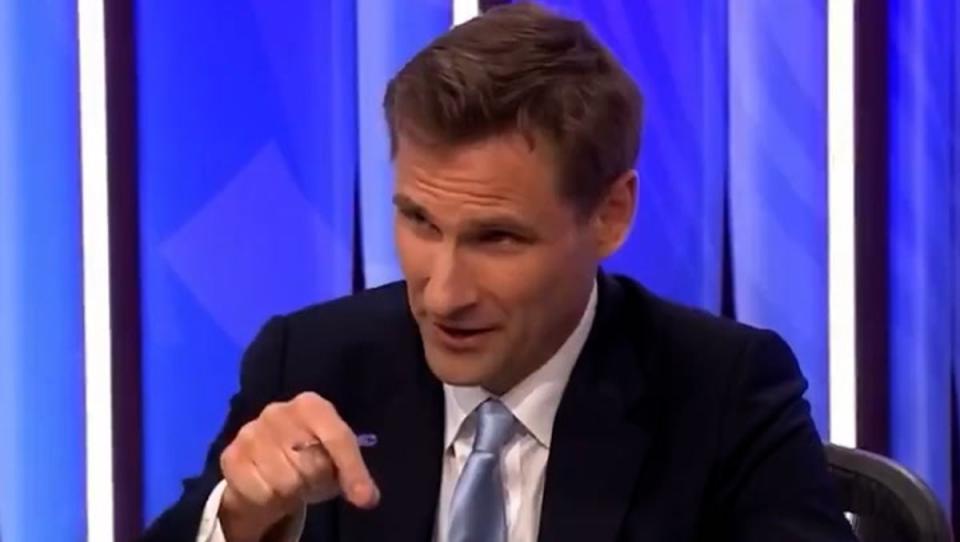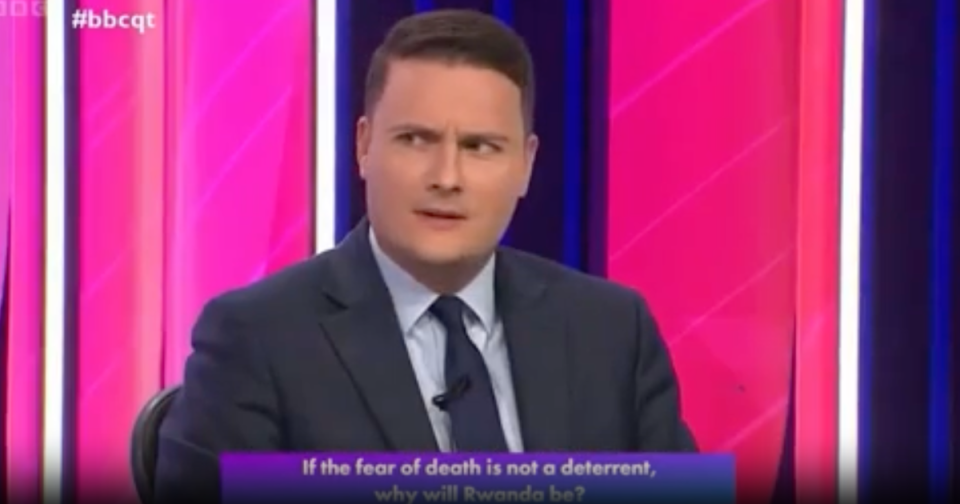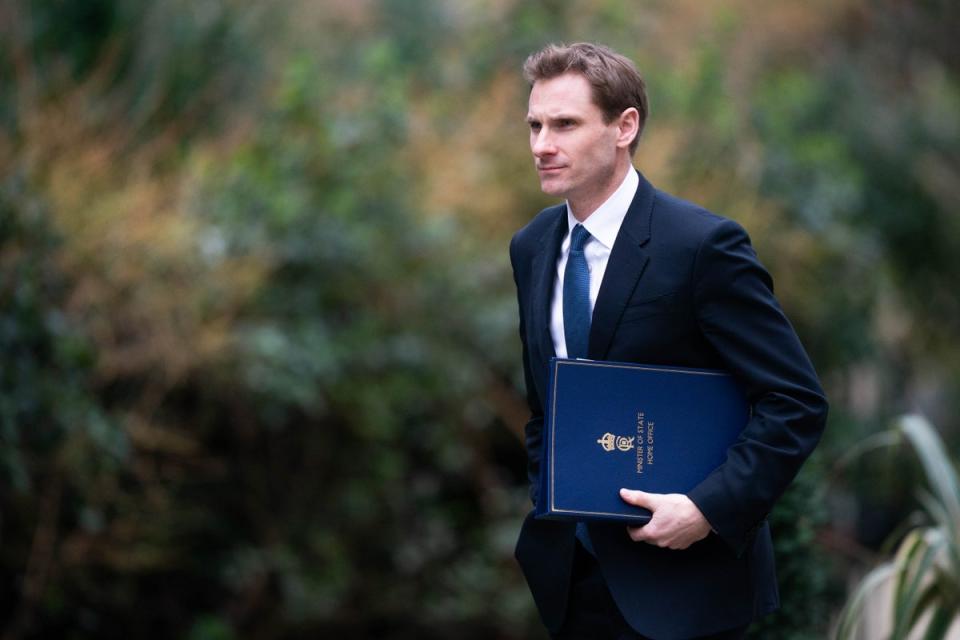Excruciating Question Time moment as minister Chris Philp asks if Congo is different country to Rwanda
Home Office minister Chris Philp has been ridiculed for asking whether Rwanda and Congo were different countries.
The policing minister’s blunder came on Thursday evening as he was being questioned on the government’s controversial deportation policy on BBC Question Time.
An audience member asked Mr Philp whether his family members from the Democratic Republic of the Congo (DRC) would be sent to Rwanda under the scheme had they been subject to the plans.

The member of the public explained the volatile situation between the DRC and Rwanda as he expressed concerns about the idea of Congolese people being sent to a hostile country.
Referring to the city of Goma in DRC, he asked: “Had my family members come from Goma on a crossing right now, would they then be sent back to the country that they’re supposedly warring with?”
However, the Tory MP seemed unable to grasp that the two countries were separate.
“No, I think there’s an exclusion on people from Rwanda being sent to Rwanda,” Mr Philp told the audience.
“They’re not from Rwanda, they’re from Congo,” the audience member replied.
Mr Philip seemed puzzled, and then asked: “Well ... Rwanda is a different country to Congo, isn’t it?”

The minister’s extraordinary question was met with visible bewilderment from the audience and fellow panelist Labour’s Wes Streeting.
Some onlookers were seen laughing while others shook their heads in disbelief.
Mr Philp went on to clarify: “There is a clause in the legislation that says if somebody would suffer seriously irreversible harm by being sent somewhere they wouldn’t be sent.”
Shadow home secretary Yvette Cooper said there were “no words” to describe the gaffe. While shadow environment secretary Steve Reed said: “He was clueless as a Treasury minister when he helped Liz Truss crash the economy.
“Now he’s clueless as a Home Office minister who doesn’t know one country from another.”
Aid organizations fear a new humanitarian crisis in the restive eastern Congo region, where the armed rebel group M23 is in the midst of a new advance in the mineral-rich area near the border with Rwanda.
The fighting has displaced 738,000 people in the first three months of this year alone, according to the UN aid agency OCHA.
The Congolese government, UN officials and western powers including the United States and Belgium have accused Rwanda of providing support for M23 - including weapons and soldiers - which Rwanda has repeatedly denied.

The Safety of Rwanda (Asylum and Immigration) Bill became an Act of Parliament on Thursday after being granted royal assent.
Parliament passed legislation aimed at getting the Government’s plan to give asylum seekers a one-way ticket to Kigali off the ground earlier this week, just hours before news of another tragedy in the Channel when five migrants died trying to make the journey to the UK.
The accompanying treaty the UK has signed with the east African nation has also been ratified, the Home Office has confirmed.

Campaigners have already called for the law, and other sweeping asylum reforms introduced by the Government, to be repealed – warning they could cause a “system meltdown” costing the taxpayer billions of pounds.
It came after French president Emmanuel Macron denounced Mr Sunak’s deportation plan as the politics of “cynicism” and a betrayal of European values.
Mr Macron also warned it would be “ineffective”, just days after the scheme – designed to give thousands a one-way ticket to the African country.
The Prime Minister, who has staked his reputation on his pledge to “stop the boats”, has described the Rwanda plan as an “indispensable deterrent”, despite it being plagued by a series of setbacks since the deal was signed two years ago.
The law declares Rwanda is a safe country and seeks to ensure the scheme – ruled unlawful by the Supreme Court – is legally watertight.
Officials are now working to put the plan into action, with Mr Sunak suggesting the first plane carrying asylum seekers could depart in July.


